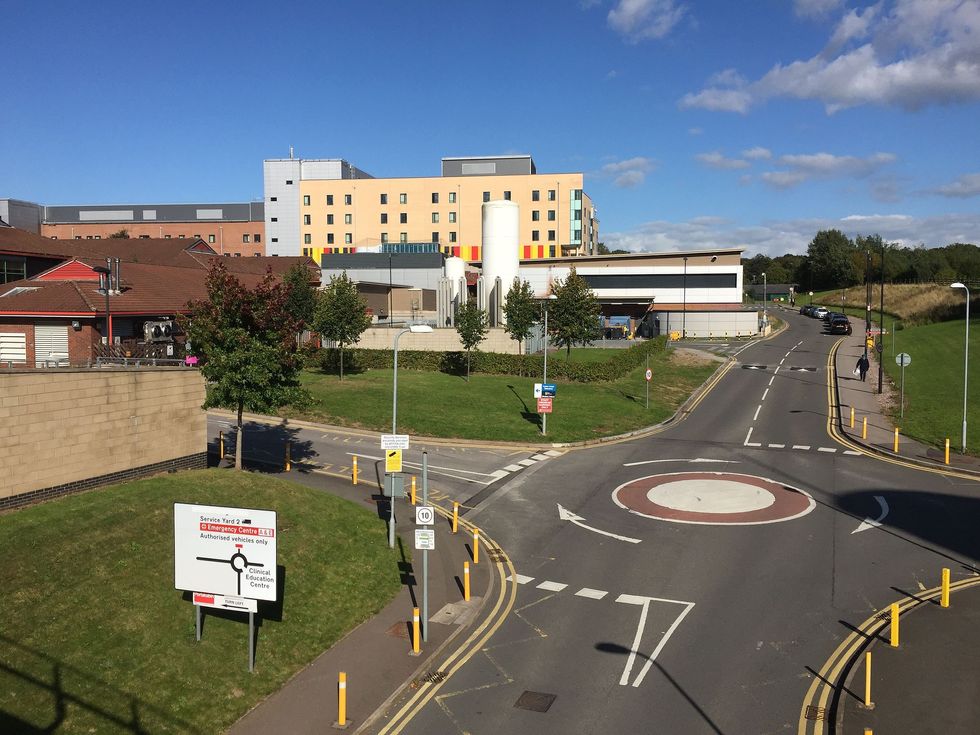The outbreak has severely impacted services at Royal Stoke University Hospital and County Hospital in Stafford
JOATHAN HUTCHINS/WIKICOMMONS
The outbreak has placed parts of the hospital under 'severe pressure'
Don't Miss
Most Read
Trending on GB News
A major hospital trust has declared a critical incident after a highly contagious gastroenteritis outbreak forced the closure of multiple wards.
The outbreak has severely impacted services at Royal Stoke University Hospital and County Hospital in Stafford, with officials confirming the crisis on Tuesday.
The vomiting and diarrhoea bug has put significant strain on hospital resources, leading to bed closures across three wards.
Health officials are now warning the public to avoid attending A&E departments at both hospitals as the facilities grapple with the infectious outbreak.
Dr Steve Fawcett, clinical director of urgent care in Staffordshire and Stoke-on-Trent, urged people to seek alternative care options.
"While the NHS is absolutely there to treat the ill and people who need hospital treatment, what we really need is to try and give the hospitals some space to deal with those sick patients," he said.

The outbreak has severely impacted services at Royal Stoke University Hospital and County Hospital in Stafford
JOATHAN HUTCHINS/WIKICOMMONS
The outbreak has placed parts of the hospital under "severe pressure," according to Dr Fawcett.
He explained: "We've got infection in the hospital with things like gastroenteritis, which is closing down some of our bed capacity... and causing problems with flow of patients through the system - back into their own homes."
Residents are being advised to visit local pharmacies instead of A&E.
A "significant number of beds" have been taken out of action across three affected wards, with infection control teams monitoring the situation.
Dr Fawcett noted that while not all beds in the affected wards are impacted, strict infection control protocols must be followed.
"We have to wait for a specific time period for the infection control team to give it the all-clear, for them to be re-used," he explained.
The outbreak has compounded typical winter pressures at the hospitals.
"The whole system is busy, everyone's working really hard, and it just aggravates it when you've got other issues that contribute to the pressure," Dr Fawcett added.
The trust declared the critical incident on Tuesday, with parts of the hospital experiencing very long wait times and ambulance delays.
Officials confirmed that longer delays than usual should be expected while the sickest patients are prioritised.
The critical incident status, which typically lasts several days, is being reviewed on an hourly basis.
The situation has particularly affected emergency services, with health leaders working to manage the increased pressures caused by the outbreak.
Dr Fawcett acknowledged that while winter always brings additional challenges, this recent surge has significantly impacted hospital operations.







